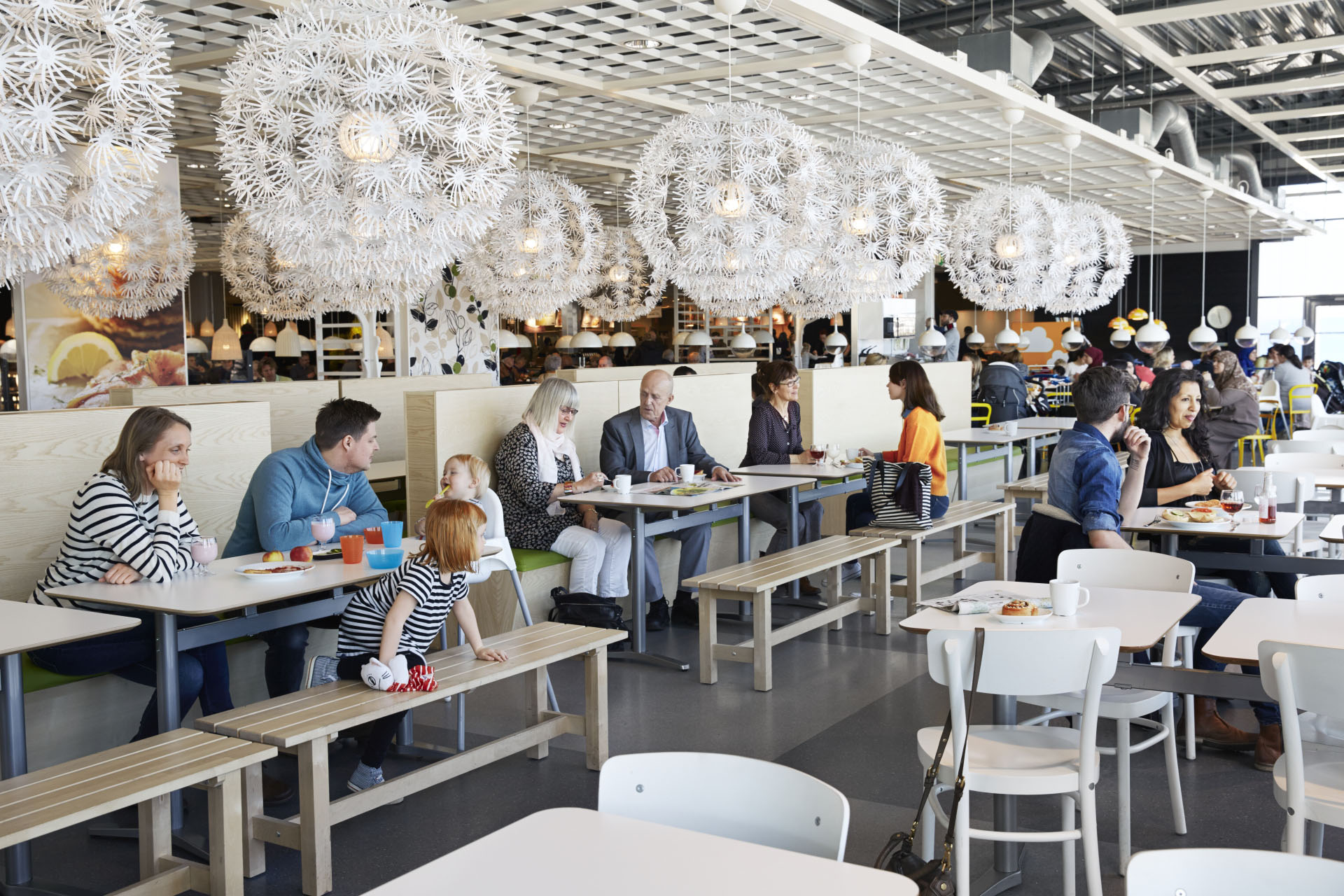Delft / NL. (ikea) As one of the world’s largest food providers, Ikea is taking the next step towards making healthy and sustainable food more affordable and desirable to the many people. By adding more options to the menu in Ikea restaurants that are both more nutritious and delicious, Ikea hopes to inspire more healthy and sustainable choices.
New Ikea food commitments, announced in connection to a pre-event for the UN Food Systems Summit 2021, include that by 2025:
- 50 percent of main meals offered in the restaurants to be plant-based and 80 percent to be non-red meat
- 80 percent of all packaged food offered to be plant-based
- 80 percent of all main meals offered in the restaurants to fulfil the Ikea Balanced Meal norm* for healthier food
Note: Percentages are not sales targets.

In 2019, over 680 million Ikea customers experienced the Ikea food offer in the restaurants, bistros and the Swedish Food Markets. As a global business, Ikea has a big responsibility – and opportunity – to make a positive difference and inspire a more healthy and sustainable living.
Today, people with thin wallets have the hardest time affording healthy and sustainable products and services. A recent study[1] of 27,000 people across 27 countries confirmed that three out of four people want to reduce their impact on the environment by a large amount, and a significant number of meat eaters would be willing to switch to plant-based alternatives if they taste equally good, and have the same price and nutritional value.
The survey also showed that companies have an important role to play in turning consumer thoughts and values into action, by making sustainable options more affordable.
«Ikea wants to make healthy and sustainable choices the most desirable option, by for example demonstrating that plant-based food can be really delicious. Research confirms the importance of making sustainable products affordable and desirable, and Ikea can really make a positive difference here. The more sustainable choice shouldn’t be a luxury for the few. It should be part of people’s everyday life» says Lena Pripp-Kovac, Chief Sustainability Officer at Inter Ikea Group.
The traditional meatball will stay on the menu. But In the last couple of years, Ikea has set out to develop more delicious and affordable plant-based options and to challenge the meat icons, with examples including the veggie ball, a chicken ball, a veggie hot dog and a salmon ball. The most recent example is the plant ball Huvudroll (»Plantbullar« in Germany) – a more sustainable option for the many meatball lovers that has only 4 percent** of the climate footprint of the traditional meatball, without compromising on taste and texture.
According to recent science[2], eating less red meat, and more fruit and vegetables, is good for both people and planet. The food system today contributes 25-30 percent of global greenhouse emissions, and a significant part comes from livestock production[3].
«A truly sustainable food system must be based on delicious, nutritious and responsibly produced food. Ikea is taking a full value chain approach to contributing to sustainable food systems, from responsible sourcing of materials, reducing food waste along the value chain, circular and more sustainable packaging and using the Ikea reach to make healthy and sustainable food options available to as many people as possible.», says Peter van der Poel, Managing Director for Ikea of Sweden and Manager Ikea Range + Supply
Ikea has already made a meaningful start on this journey. More plant-based and healthier food options will continue to be rolled out in a phased approach in Ikea restaurants and Swedish Food Markets (Photo: Inter IKEA Systems B.V.).
Addendum
[*] Healthier according to the Ikea Balanced Meal Norm: a science-based nutrition assessment framework created by Ikea and used in product development to improve the nutritional quality of meals and snacks in Ikea Food. The Balanced Meal Norm means that meals meet requirements Ikea has set to manage the content of calories (kcal), saturated fats, sugars, salt and fibre in the meal. These are key nutrients to target to help children as well as adults to eat and live healthier. The Ikea Balanced Meal Norm supports Ikea in developing meals that have a balance in the content of these nutrients.
[**] Relates to the climate footprint of the ingredients only, and excludes processing, transportation and storing.
[1] https://globescan.com/people-want-healthy-sustainable-living-choices-2020
[2] https://eatforum.org/content/uploads/2019/07/EAT-Lancet_Commission_Summary_Report.pdf
[3] https://www.ipcc.ch/site/assets/uploads/2019/08/2f.-Chapter-5_FINAL.pdf



